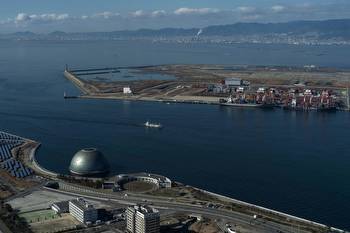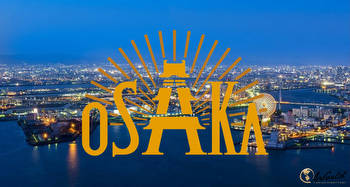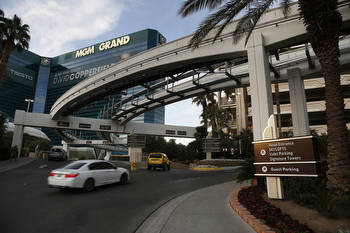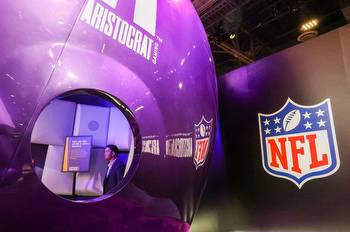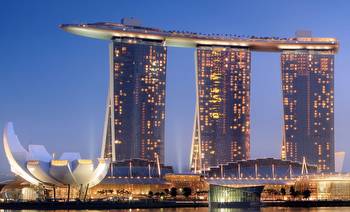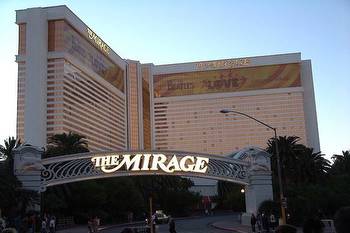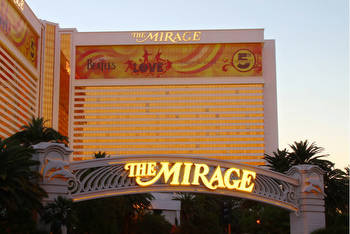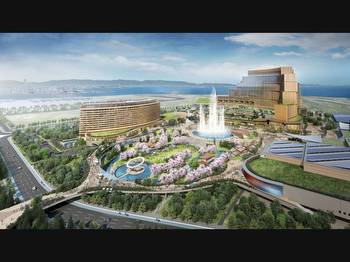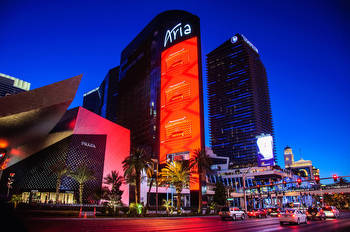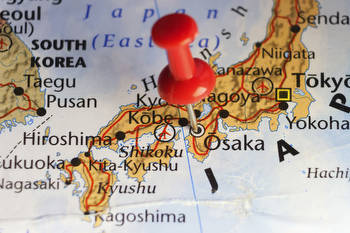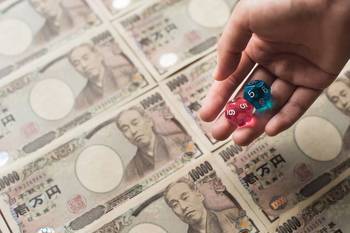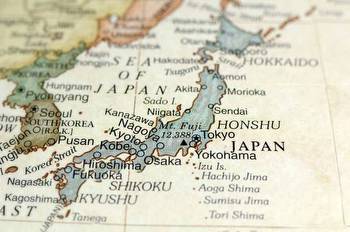Indy Gaming: MGM’s $10 billion project in Osaka approved by Japan as the country’s first casino

Good morning, and welcome to the Indy Gaming newsletter, a weekly look at gaming matters nationally and internationally and how the events tie back to Nevada.
If a colleague or associate emailed this newsletter to you, please to sign up and receive your own copy of Indy Gaming in your inbox. - Howard Stutz
More than a decade ago, Nevada’s major casino operators viewed Japan as the world’s next lucrative gaming market.
However, companies then slowly withdrew from the bidding process, frustrated by the indecisiveness of the Japanese government as different prime ministers stalled and restarted the idea.
MGM Resorts International remained engaged in its longstanding effort in Osaka, though.
Last week the company’s patience was rewarded.
The Japanese government, through its Ministry of Land, Infrastructure, Transport and Tourism, certified the Area Development Plan for Osaka and will allow MGM Resorts to move forward on its $10 billion integrated resort complex.
The complex, located on 122 acres along the water on Osaka's Yumeshima Island, will become the country’s first casino development when completed in 2029.
"It is an honor to be selected by the government of Japan to develop a tourism project of this scale,” MGM CEO Bill Hornbuckle said in a statement Friday. “We couldn't be more excited to get started on the development of one of Japan's first [integrated] resorts in the great city of Osaka, and we look forward to working with our partner ORIX and Osaka Prefecture/City to realize this long-held goal."
Osaka leaders approved the plans between MGM Resorts and Osaka-based development company ORIX in October 2021.
In addition to gaming, the complex will offer a sprawling selection of non-gaming attractions, including 2,500 hotel rooms, more than 700,000 square feet of conference and exhibition facilities, retail shopping, a variety of food and beverage offerings and other resort and entertainment activities.
According to Japanese media accounts, Prime Minister Fumio Kishida said the "integrated resort is important for attracting many tourists, both domestic and international, and to pursue the goal of being a tourism-oriented nation."
Hornbuckle, in a letter Friday afternoon to MGM employees, said the development will transform the region “into one of the world’s top entertainment and hospitality destinations and serve as a hub for tourism across Japan.”
JMP Securities gaming analyst Jordan Bender said the cost of MGM’s Osaka project would eclipse the company’s $8.5 billion CityCenter development, which opened on the Strip in 2009, as the most expensive integrated casino resort in the world. Las Vegas Sands spent $7 billion to open the Marina Bay Sands in Singapore in 2010.
CBRE Equity Research gaming analyst John DeCree predicted MGM’s Osaka casino could top the annual combined gaming revenue produced by Singapore’s two casinos, which are operated by Resorts World and Las Vegas Sands. Last year, Singapore grew gaming revenue by 76 percent to $3.56 billion as the country reopened following two years of pandemic restrictions.
DeCree said Osaka is one of the largest metropolitan statistical areas in the world with a population of more than 19 million. The city is a draw to some 12 million annual tourists.
“The local population in Osaka is three times larger than in Singapore, and while Singapore draws more foreign tourists, Osaka more than makes up for that in domestic tourism,” DeCree wrote in a research note Friday.
“Osaka is a quick 90-minute flight or two-hour bullet train from Tokyo, giving MGM access to an even greater population base with no other domestic casino options potentially for several years,” DeCree wrote.
MGM operates two casino resorts in Macau: MGM Macau and MGM Cotai. But Hornbuckle said he “cannot overstate how important this decision [by Japan] is for us as a company.”
Last year, MGM’s Macau properties recorded revenue of $674 million, a decline of 44 percent compared to $1.2 billion in 2021. The Macau market saw its lowest single-year revenue total in almost two decades in 2022 due to lingering issues surrounding the pandemic.
Company executives are expected to discuss Macau and Japan in more detail during MGM’s first-quarter conference call on May 1.
Online poker transparency bill dies in Carson City
A bill that would shine a light on any cheating activities within Nevada’s small online poker world didn’t survive the state’s legislative process.
But professional poker player Sara Cholhagian Ralston, the measure’s primary backer, said the conversation surrounding poker transparency in Nevada “is too important to be abandoned, and I hope that it will continue.”
As initially written, AB380 called for the creation of a list of people with interactive gaming accounts who have been suspended or banned for cheating.
Ralston amended the bill to remove the word “cheating” from anywhere in the two-page measure. She also took out any mention of a person being suspended or banned from an interactive gaming system for cheating, instead just creating a list of all players with an account and their status.
Last week, Assembly Judiciary Committee Chairwoman Brittney Miller (D-Las Vegas) said there were not enough votes to move AB380 forward.
Caesars Entertainment, which operates Nevada’s only poker website based on the company-owned World of Series of Poker, opposed the legislation, saying it would create a burden for the company. Lobbyist Michael Alonso said Caesars does “everything reasonably possible to keep bad actors off the [online poker] site.”
Unless Nevada gaming regulators add more transparency to online poker, Ralston said she would seek to reintroduce the bill in the 2025 legislative session.
“I believe that the conversation about poker transparency in Nevada is too important to be abandoned, and I hope that it will continue,” said Ralston, the former executive director of the state’s Patient Protection Commission.
“As someone who cares deeply about the poker industry, I brought this issue forward because of my moral compass and the belief that transparency is crucial to protect the integrity of the game,” she added.
Nevada legalized online poker in 2013, but gaming companies said the state is too small for multiple sites, leaving Caesars as the sole operator.
Nevada is part of the Multi-State Internet Gaming Agreement that was created in 2014 with Delaware to build the player pool for two of the nation’s smallest states in terms of population. New Jersey joined in 2017 and Michigan was added a year ago.
Since 2012, six states — Connecticut, Delaware, Michigan, New Jersey, Pennsylvania and West Virginia — have legalized online casino gaming.
(Disclosure: Sara Cholhagian Ralston is the wife of Nevada Independent CEO Jon Ralston. He was not involved in the editing of this story)
Everi yells ‘bingo’ over a $59 million equipment purchase
A $59 million acquisition of a privately owned provider of electronic bingo gaming tablets and content might seem like a small investment for Las Vegas-based gaming equipment provider Everi Holdings.
The investment community didn’t see it that way.
Truist Securities gaming analyst Barry Jonas told investors last week the purchase of Nebraska-based Video King gives Everi a foothold in a gaming market that is “relatively underserved.”
Everi sells and leases gaming machines and systems to casino operators, along with payment technology and player loyalty programs. The company isn’t in the bingo space.
Video King is licensed in some 60 jurisdictions and provides more than 50,000 devices to bingo halls and casinos, including 40 of the largest tribal casinos in Texas, California and Florida. Video King’s tablets are also used on cruise ships.
Jonas said Everi would deploy cashless gaming and online gaming content on Video King's tablets.
B. Riley gaming analyst David Bain termed the acquisition, “unique and competition-light,” given that Everi’s main rivals don’t have business with the casino industry’s bingo sector.
Bain noted the deal could be more lucrative to Everi “than at first blush, particularly over the longer term.” He suggested the cash flow from wagering activity on the tablets could almost double once Everi’s casino games are added, which would offer players “new, faster-playing games than e-bingo.”
Everi is paying cash for Video King and the sale could close in June.
Quotable
Via press release from Light & Wonder
The Naskila Casino near Houston signed an agreement with Las Vegas-based Light & Wonder for a casino management system to oversee the property’s 825 bingo-style slot machines. The casino, located in Livingston, Texas, is operated by the Alabama-Coushatta Tribe of Texas. The systems will help the tribe manage programs for player rewards, marketing and promotions.
“These products are part of a coveted portfolio of casino management systems, hardware and software that enable our customers to deliver best-in-class experiences for their players at all points of business and ultimately drive revenue for their enterprise.”
- Siobhan Lane, CEO of Gaming, Light & Wonder
Via press release from Marker Trax
Las Vegas-based cashless gaming credit provider Marker Trax hired a cybersecurity expert with gaming industry experience as its vice president of information technology operations and engineering. Val Apoderado spent two decades in technology operations across multiple industries. He managed complicated cybersecurity, compliance and governance programs for several companies, including Wynn Resorts, the Nevada Cancer Institute and Shift4 Payments.
“The crux of our success is managing and tracking customers’ credit activities and having robust, secure, and regulatory-compliant systems in place to manage that data is of paramount importance. With Val leading these focused efforts, we’re taking another step forward in our industry-leading position in the cashless credit gaming sector.”
- Charlie Skinner, president, Marker Trax










